Over the past few weeks, have you been feeling helpless watching the news or scrolling through your phone? I remember feeling similarly while watching events unfold in Afghanistan last year, in Myanmar (where civilians continue to be killed because of their ethnicity) and, of course, over the past several years in Syria.
Now, with the invasion of Ukraine, we’re watching a war take place from the comfort of our homes and there is very little we can do to help.
Each time a situation like this unfolds, I always ask the same questions: how best can I help? Should I donate goods? Should I donate money? To whom? If I make a cash donation, how can I be sure the money will get to those who need it most?
We are bombarded with charities, fundraisers and collections and it can be difficult to pool your money and attention to where it is most needed.
Many rural Irish citizens were shocked and hurt by the Bothár scandal in 2021, where a former chief executive of the charity admitted to misappropriating funds.
This may have tarnished previous charitable experiences and now, perhaps, you’re wondering who you can trust with your charitable donation.
84% of all funds raised go directly to field operations
Transparency is a must
Jody Clarke is senior external relations associate with the United Nations Refugee Agency (UNHCR). He says this is an understandable way to feel but it shouldn’t deter anyone from donating to a cause they wish to support.
“Organisations have to be transparent with the public and all their donors, including governments who provide the bulk of UNHCR’s funding. We have to regularly report to them on our activities.
“In terms of our own funding, 84% of all funds raised go directly to field operations where 90% of our staff are based.”
The UNHCR are working to help displaced Ukrainians as more than one million refugees have crossed borders into neighbouring countries like Poland, Hungary, Moldova, Romania and Slovakia. They are calling it “Europe’s largest refugee crisis this century” (according to the latest briefing on unhcr.org).
Jody says the outpouring of charitable donations has been heart-warming to see, but that when it comes to donations in times of crises, monetary ones are always preferred.
Money well spent
“There’s been an incredible outpouring of support in neighbouring countries, with people opening their doors, sharing food and bringing supplies, including blankets, warm clothes and other items to people who have crossed the border,” he says.
“However, providing funding to humanitarian agencies who are already on the ground gives us more flexibility to get core relief items and cash assistance to people both inside Ukraine and in neighbouring countries.
Before the current fighting broke out, we had already prepositioned supplies in the region (such as thermal blankets and tarpaulins) and stand ready to provide more so long as safe access for humanitarian agencies is guaranteed.
“In the coming days and weeks, cash assistance may be one of the best ways to assist people,” he continues. “UNHCR, along with other humanitarian agencies, have over time found it better meets peoples’ needs in an effective, sustainable and dignified way.
Where there are already markets and services in local areas, it allows people to meet their own needs and to support local businesses.”
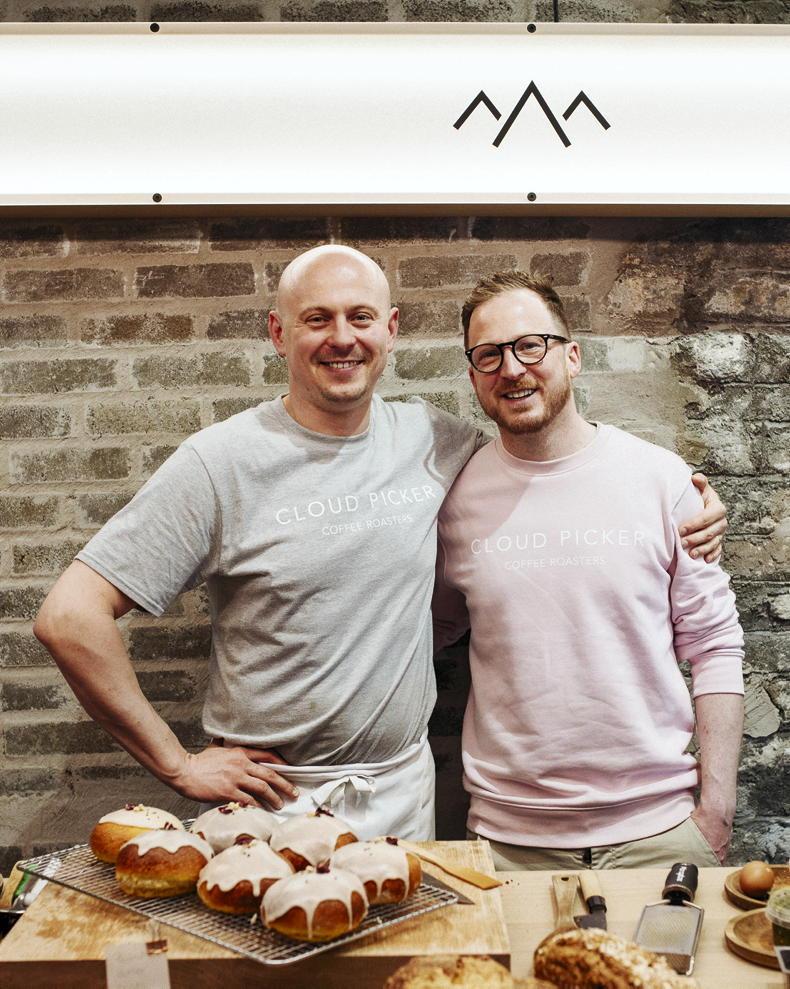
Frank Kavanagh and Peter Sztal own and operate Cloud Picker Coffee.
Help from hospitality
There has been an outpouring of support for Ukrainian citizens from Irish individuals and businesses alike in recent days. The hospitality industry, in particular, has stepped up in a big way to help raise funds to support the war effort and humanitarian crisis.
Micro-roastery Cloud Picker Coffee came to the fore immediately as events began to unfold. They developed a multifaceted fundraising raffle of which businesses and individuals (regardless of budget) could partake.
The raffle proceeds (which ended the morning of 8 February) amounted to over €45,000 and were donated to UNICEF. Prizes were valued at up to €8,000 and offered three donation options: €10, €25 or €250. All prizes were donated by Cloud Picker.
Peter Sztal is co-founder of Cloud Picker, along with his life and business partner Frank Kavanagh. They also co-organised a charity dinner and auction with Allta restaurant called Chefs Unite for Ukraine, which took place on the 8th and was well-attended.
“Since opening the business together, myself and Frank wanted to put empathy at the forefront of what we do,” he explains. “Apart from money being raised, we’re committing to bringing two Ukrainian coffee professionals to Ireland. We’re willing to pay for their flights and, then, provide employment.
Right now, there are conversations happening within the EU to allow working visas for Ukrainian citizens. But even if we don’t get that permission, we will find a way to do it - whether through sponsorship or putting them through school.
“Myself and Frank – we aren’t sure how this will work yet – have also decided to share our house with Ukrainian refugees. We have a few extra bedrooms, so if we can provide a bit of safety and peace of mind we should do it,” he adds.
I’ve been saying this a lot in the past week: a steady drop shapes the rock
Do whatever you can
In terms of cash versus item donations, Peter, who is originally from Poland, has a slightly different take.
“It’s a tricky situation,” he says, “but obviously you can safeguard yourself and donate to trustworthy charitable organisations. We went with UNICEF [for this fundraiser] because we’ve worked with them in the past.
We’ve also been reading a lot – I’m sure everyone has – in recent weeks. We’re hearing a lot of: ‘If you think that your blanket’s not going to help us, you’re wrong’, or, ‘If you think your €2 isn’t going to help us, you’re wrong.’
“I’ve been saying this a lot in the past week: a steady drop shapes the rock,” he continues. “When there’s a drip of water hitting a rock for a long amount of time, it will shape that rock. It’s about doing whatever you can, even if it’s simply spreading awareness.”
Good to know
It’s never a bad idea to ask questions before donating money.
Before you decide to donate to a cause of your choice, look them up on the internet. Don’t be afraid to call them to get a better understanding of their operation if you have questions or concerns.
Does the charity website provide a link to explain their corporate governance or show their annual reports?
Grassroots charities
There are many smaller fundraisers and charities popping up around the country and most are legitimate. In this instance, ask yourself: do I know and trust the individual organising this fundraiser or charity?
Taking all of this into account, never be afraid to donate to a cause you feel strongly about if you are in the position to do so.
Not sure where to start?
Dóchas are an umbrella organisation for Irish International NGOs. If you’re looking for a reputable charity to support, they have a list of charities which are operating on the ground in Ukraine (dochas.ie).
Read more
Katherine O’Leary: a frightening international development
Feeling a fraud and selfish in the face of human suffering
Over the past few weeks, have you been feeling helpless watching the news or scrolling through your phone? I remember feeling similarly while watching events unfold in Afghanistan last year, in Myanmar (where civilians continue to be killed because of their ethnicity) and, of course, over the past several years in Syria.
Now, with the invasion of Ukraine, we’re watching a war take place from the comfort of our homes and there is very little we can do to help.
Each time a situation like this unfolds, I always ask the same questions: how best can I help? Should I donate goods? Should I donate money? To whom? If I make a cash donation, how can I be sure the money will get to those who need it most?
We are bombarded with charities, fundraisers and collections and it can be difficult to pool your money and attention to where it is most needed.
Many rural Irish citizens were shocked and hurt by the Bothár scandal in 2021, where a former chief executive of the charity admitted to misappropriating funds.
This may have tarnished previous charitable experiences and now, perhaps, you’re wondering who you can trust with your charitable donation.
84% of all funds raised go directly to field operations
Transparency is a must
Jody Clarke is senior external relations associate with the United Nations Refugee Agency (UNHCR). He says this is an understandable way to feel but it shouldn’t deter anyone from donating to a cause they wish to support.
“Organisations have to be transparent with the public and all their donors, including governments who provide the bulk of UNHCR’s funding. We have to regularly report to them on our activities.
“In terms of our own funding, 84% of all funds raised go directly to field operations where 90% of our staff are based.”
The UNHCR are working to help displaced Ukrainians as more than one million refugees have crossed borders into neighbouring countries like Poland, Hungary, Moldova, Romania and Slovakia. They are calling it “Europe’s largest refugee crisis this century” (according to the latest briefing on unhcr.org).
Jody says the outpouring of charitable donations has been heart-warming to see, but that when it comes to donations in times of crises, monetary ones are always preferred.
Money well spent
“There’s been an incredible outpouring of support in neighbouring countries, with people opening their doors, sharing food and bringing supplies, including blankets, warm clothes and other items to people who have crossed the border,” he says.
“However, providing funding to humanitarian agencies who are already on the ground gives us more flexibility to get core relief items and cash assistance to people both inside Ukraine and in neighbouring countries.
Before the current fighting broke out, we had already prepositioned supplies in the region (such as thermal blankets and tarpaulins) and stand ready to provide more so long as safe access for humanitarian agencies is guaranteed.
“In the coming days and weeks, cash assistance may be one of the best ways to assist people,” he continues. “UNHCR, along with other humanitarian agencies, have over time found it better meets peoples’ needs in an effective, sustainable and dignified way.
Where there are already markets and services in local areas, it allows people to meet their own needs and to support local businesses.”

Frank Kavanagh and Peter Sztal own and operate Cloud Picker Coffee.
Help from hospitality
There has been an outpouring of support for Ukrainian citizens from Irish individuals and businesses alike in recent days. The hospitality industry, in particular, has stepped up in a big way to help raise funds to support the war effort and humanitarian crisis.
Micro-roastery Cloud Picker Coffee came to the fore immediately as events began to unfold. They developed a multifaceted fundraising raffle of which businesses and individuals (regardless of budget) could partake.
The raffle proceeds (which ended the morning of 8 February) amounted to over €45,000 and were donated to UNICEF. Prizes were valued at up to €8,000 and offered three donation options: €10, €25 or €250. All prizes were donated by Cloud Picker.
Peter Sztal is co-founder of Cloud Picker, along with his life and business partner Frank Kavanagh. They also co-organised a charity dinner and auction with Allta restaurant called Chefs Unite for Ukraine, which took place on the 8th and was well-attended.
“Since opening the business together, myself and Frank wanted to put empathy at the forefront of what we do,” he explains. “Apart from money being raised, we’re committing to bringing two Ukrainian coffee professionals to Ireland. We’re willing to pay for their flights and, then, provide employment.
Right now, there are conversations happening within the EU to allow working visas for Ukrainian citizens. But even if we don’t get that permission, we will find a way to do it - whether through sponsorship or putting them through school.
“Myself and Frank – we aren’t sure how this will work yet – have also decided to share our house with Ukrainian refugees. We have a few extra bedrooms, so if we can provide a bit of safety and peace of mind we should do it,” he adds.
I’ve been saying this a lot in the past week: a steady drop shapes the rock
Do whatever you can
In terms of cash versus item donations, Peter, who is originally from Poland, has a slightly different take.
“It’s a tricky situation,” he says, “but obviously you can safeguard yourself and donate to trustworthy charitable organisations. We went with UNICEF [for this fundraiser] because we’ve worked with them in the past.
We’ve also been reading a lot – I’m sure everyone has – in recent weeks. We’re hearing a lot of: ‘If you think that your blanket’s not going to help us, you’re wrong’, or, ‘If you think your €2 isn’t going to help us, you’re wrong.’
“I’ve been saying this a lot in the past week: a steady drop shapes the rock,” he continues. “When there’s a drip of water hitting a rock for a long amount of time, it will shape that rock. It’s about doing whatever you can, even if it’s simply spreading awareness.”
Good to know
It’s never a bad idea to ask questions before donating money.
Before you decide to donate to a cause of your choice, look them up on the internet. Don’t be afraid to call them to get a better understanding of their operation if you have questions or concerns.
Does the charity website provide a link to explain their corporate governance or show their annual reports?
Grassroots charities
There are many smaller fundraisers and charities popping up around the country and most are legitimate. In this instance, ask yourself: do I know and trust the individual organising this fundraiser or charity?
Taking all of this into account, never be afraid to donate to a cause you feel strongly about if you are in the position to do so.
Not sure where to start?
Dóchas are an umbrella organisation for Irish International NGOs. If you’re looking for a reputable charity to support, they have a list of charities which are operating on the ground in Ukraine (dochas.ie).
Read more
Katherine O’Leary: a frightening international development
Feeling a fraud and selfish in the face of human suffering





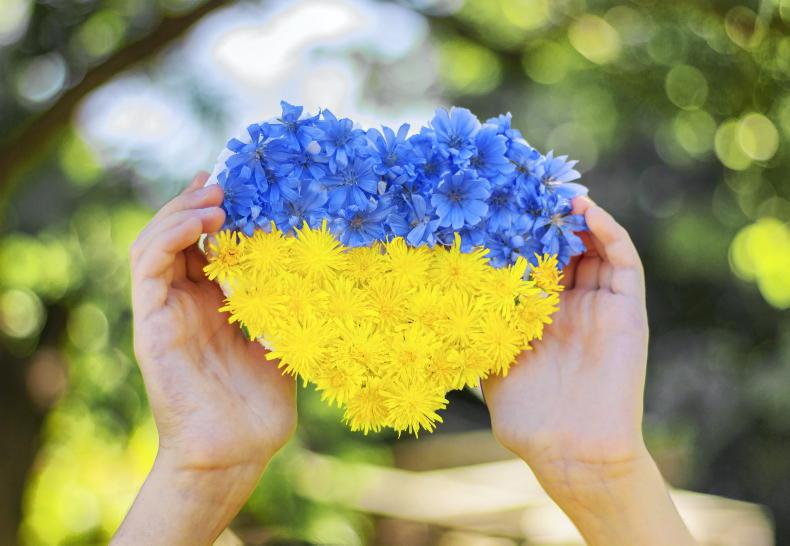
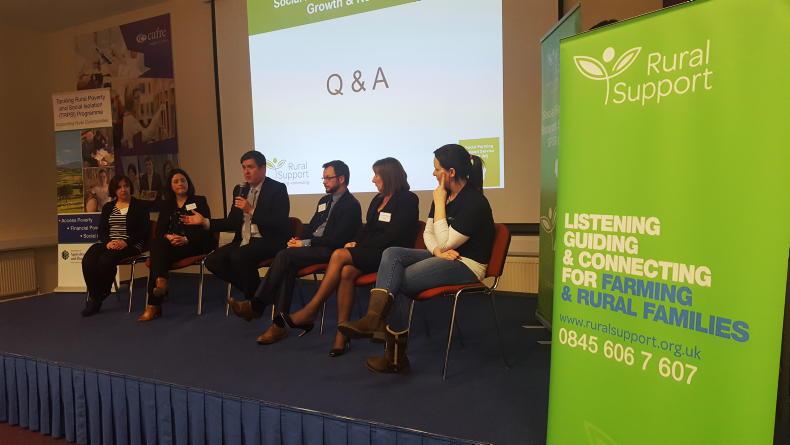

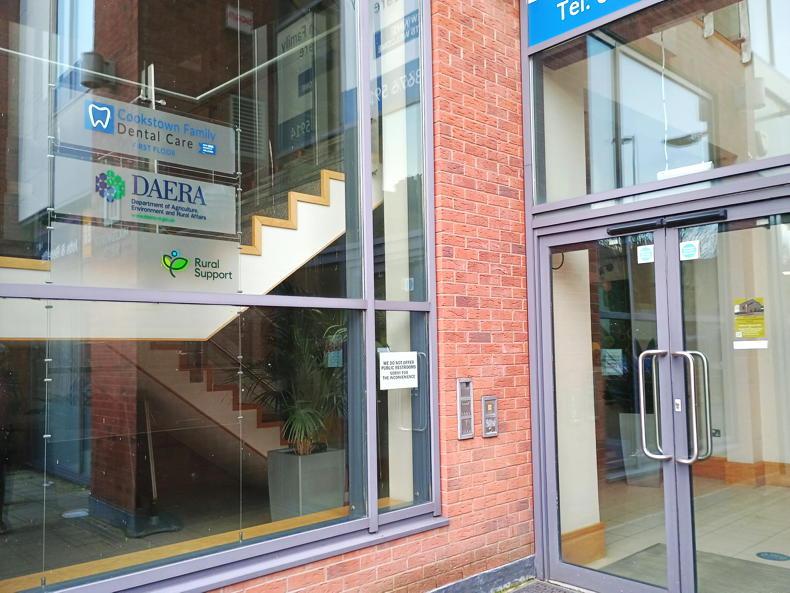
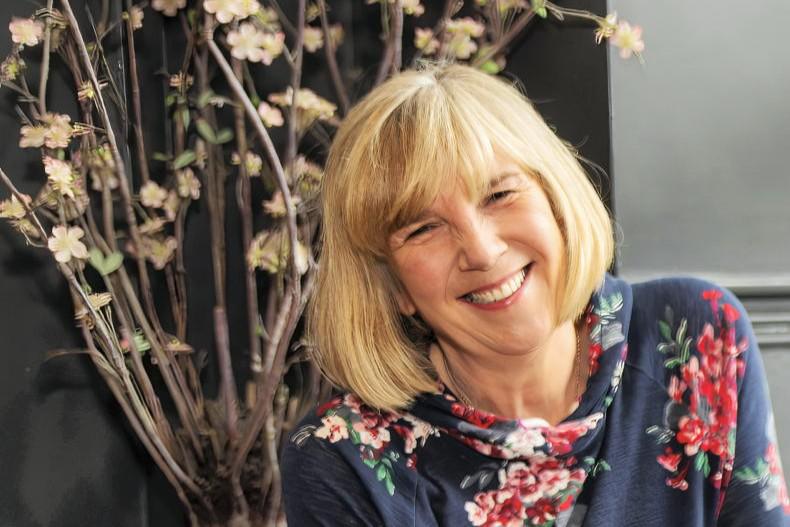
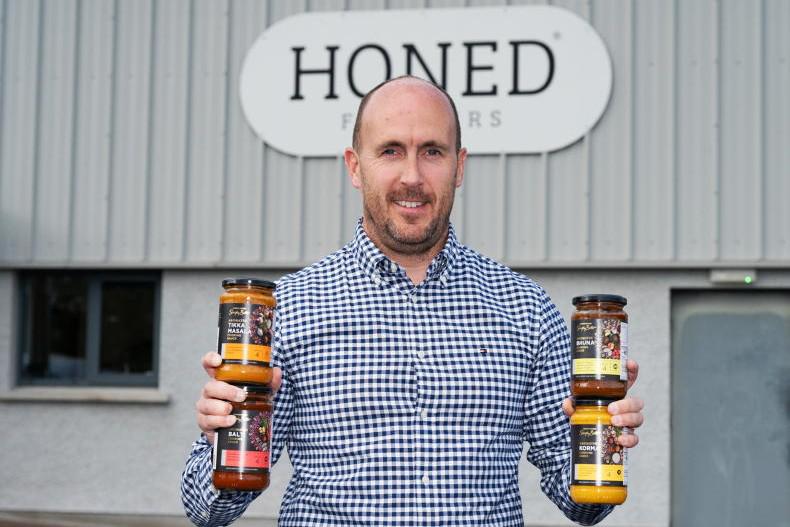
SHARING OPTIONS